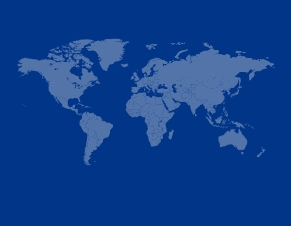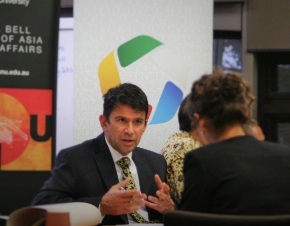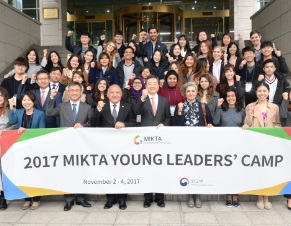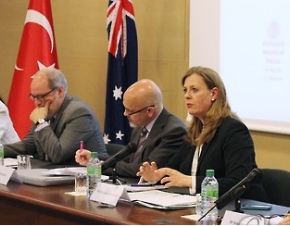MIKTA e-commerce workshop reflections
Reflecting on the MIKTA E-Commerce Workshop held at the WTO on 5 July 2016, MIKTA countries took note of the following key messages:
Recognising the ever increasing importance of e-commerce for trade, economic growth and development the WTO should focus more attention on its digital trade agenda
there is positive interest and willingness among WTO Members to progress work on e-commerce
the WTO has an important role to play
to keep the digital markets open;
to create a facilitating environment through transparency, predictability and non‑discrimination;
to promote consumer confidence;
to facilitate and promote SME access and capacity;
and to resolve trade issues as they arise in the WTO;
E‑Commerce is not a new issue in the WTO
digital trade is well within the scope of WTO rules, including under the GATT, GATS, TRIPS and other WTO agreements;
we have an existing E-Commerce Work Programme (1998);
we need to find new ways to deliver outcomes under the Work Programme;
There are also newer E-Commerce issues that have only come onto the trade policy radar in recent years, such as data flows and data localisation
technical work is needed to increase understanding about various trade policy approaches and their implications for developed and developing countries;
to build comfort around the types of trade disciplines that could be negotiated;
We need to concretely identify trade policy aspects related to e‑commerce where the WTO can contribute.Ideas discussed during the Workshop include:
improving metrics and insights on digital trade through the regular work of WTO Committees;
using the Trade Policy Review Mechanism to evaluate digital trade barriers;
building on the Trade Facilitation Agreement to support e-commerce;
updating the Telecommunications Reference Paper to support digital competition;
negotiating improved digital services market access commitments;
improving market access commitments for essential support services such as transport, logistics, delivery services and financial services;
negotiating e-commerce disciplines, including on
data flows and localisation, subject to appropriate public policy exceptions;
consumer protection and privacy to ensure Members have regulatory frameworks in place to support the development of e-commerce.
We need to reflect on which aspects could be pursued in the immediate term under the existing WTO E-Commerce Work Programme and which aspects will be deliverable in the longer term after further analysis, discussion and cooperation.








